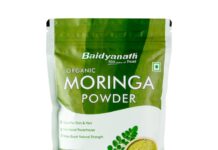Most consumers believe food and beverage manufacturers should declare if a product has been made with the assistance of artificial intelligence (AI), new research shows.
In a survey commissioned by Ingredient Communications and conducted by SurveyGoo, 83% of respondents agreed that companies should declare on a product’s label if it has been designed or manufactured with the help of AI technology. More than half of all those surveyed – 55% – agreed with this assertion strongly and only 4% disagreed with it altogether.
Nearly two thirds of respondents (64%) said they believed that food and beverage products made with the help of AI technology should not be described as ‘natural’ – with 12% disagreeing with this. There was also strong support for regulation, with 78% of respondents agreeing that the Government should introduce laws controlling the ways food and drink companies can use AI technology to design and manufacture their products. Just 6% disagreed with this.
A majority of respondents (52%) agreed with the general point that AI technology is a positive development that will benefit humanity, with 21% disagreeing. However, when asked how they felt about the use of AI specifically to design and produce food and beverage products, fewer respondents (42%) said they felt positively about this, with 27% saying they felt negatively.
Just under half of respondents (44%) said they believed that a food or beverage product made with the help of AI might be less safe to consume. However, they were split on whether they would be more or less likely to buy a food or beverage product made with the help of AI. Just over a quarter (26%) said they would be more likely to do so, with 29% stating they would be less likely.
The survey also revealed a distinct generational split. A majority of Generation Z and Millennial respondents felt positively about the use of AI in the food industry (65% and 57%, respectively). The corresponding figure among Generation X and Boomers was markedly lower – 44% and 25%, respectively.
Richard Clarke, managing director of Ingredient Communications, commented: “Many food and beverage companies have rushed to embrace the benefits of AI technology but it’s important they take care to consider how consumers feel about this. We’ve seen a huge backlash against AI in the arts and entertainment business. To avoid the same fate, food and beverage manufacturers should pause to reflect on whether they are being sufficiently transparent about their use of AI.”
He continued: “As we saw 30 years ago with the furore over the safety of genetically modified crops, it’s easy for misinformation to spread and stir up fear. Food and beverage companies would be wise to implement a communications strategy to ensure the public is kept informed about the ways in which they harness the power of AI tech.”
Other takeaways from the survey included 79% of respondents agreeing that savings made by food and beverage companies through the use of AI should be passed on to shoppers in the form of lower retail prices.
However, sentiment shifted if this came at the expense of employment, with 40% considering it unacceptable if the use of AI technology to design and manufacture a food or beverage product meant somebody lost their job – even products were cheaper as a result. A third of respondents (33%) considered this an acceptable outcome.
(Online survey of 1,040 consumers in UK and USA, conducted October 2024)
IndiFoodBev — authentic, impactful and influential
An English-language food and beverage processing and packaging industry B2B platform in print and web, IndiFoodBev is in its third year of publication. It is said that the Indian food and beverage industries represent approximately US$ 900 billion in revenues which implies more than 20% of the country’s GDP. Eliminating the wastage on the farmside can help to deliver more protein to a higher number of the population apart from generating sizable exports. The savings in soil, seeds, water, fertilizer, energy and ultimately food and nutrition could be the most immense contribution that country is poised to make to the moderation of climate change.
To improve your marketing and grow sales to the food and beverage processing and packaging industry, talk to us. Our research and consulting company IppStar [www.ippstar.org] can assess your potential and addressable markets in light of the competition. We can discuss marketing, communication, and sales strategies for market entry and growth.
Suppliers and service providers with a strategy and budget for targeted marketing can discuss using our hybrid print, web, video, and social media channels to create brand recognition linked to market relevance. Our technical writers are ready to meet you and your customers for content.
The second largest producer of fruit and vegetables in the world is continuously expanding processing capacities and delivery systems with appropriate innovative technologies. We cover product and consumer trends, nutrition, processing, research, equipment and packaging from farm to thali. Get our 2025 media kit and recalibrate your role in this dynamic market. Enhance your visibility and relevance to existing markets and turn potential customers into conversations. Ask for a sample copy of our bi-monthly in print or our weekly IndiFoodBev eZine each Wednesday.
For editorial info@ippgroup.in — for advertisement ads1@ippgroup.in and for subscriptions subscription@ippgroup.in
Naresh Khanna – 10 February 2025
Subscribe Now











